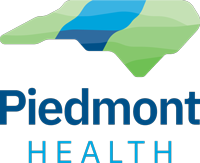Is there a connection between your head and your heart, or more specifically between your mouth and your heart?
This is not a particularly new question. In fact, in the 1920s the possibility that poor oral health might result in poor overall health led to many extractions, but no fewer heart attacks. However, more recently, there have been studies suggesting a link between “gum” disease and heart disease as well as strokes.
So do we know how or why there might be a connection? Several possibilities have been proposed. One is that the people who are likely to have poor oral health are also likely to have poor heart health or strokes due to other reasons. So, for example, tobacco use of all types causes poor oral health as well as increasing the likelihood of heart attacks and strokes. Likewise, people with diabetes may experience medical problems related to high blood sugar that impair oral health (such as dry mouth and delayed wound healing) as well as heart health and strokes (due to impaired circulation to the heart and brain).
Another hypothesis involves inflammation. The thought is that chronic gum disease creates an environment of inflammation in the body, which then predisposes one to have a heart attack. The problem is that the research supporting this hypothesis is not strong enough to say that this is clearly the story.
There is another thought related to bacteria that are found in the mouth. Several of the bugs found in the mouth of people with gum disease have also been found attached to plaques (inside of blood vessels) that can cause heart attacks. It should also be noted that the presence of these bacteria will cause inflammation, bringing us back to the inflammation theory.
Regardless of the cause, what we can’t deny is that there is an association between poor oral health and cardiovascular disease. Good oral health begins in childhood with optimal care of the teeth through brushing, flossing, and visiting your dental provider at least twice a year for check-upsstarting prior to age 1, according to recommendations by the American Academy of Pediatric Dentistry.
Piedmont Health provides dental care for infants through seniors of all ages. Piedmont has a Baby Oral Health Program (BoHP) for infants throughage 3.We work with patients of any ages and have quite a number of seniors that come to us for dental services. We welcome all new patients at our five Dental Departments (in Carrboro, Moncure, Siler City, Burlington and Prospect Hill) and we accept most insurance. If a person does not have insurance, we have a sliding-scale fee.
Call us today for a dental check-up for yourself and your entire family. Do something good for your family! Your health, especially in later years, depends upon good oral health, so start getting regular dental care now for your entire family.
Dr. Katrina Mattison-Chalwe, DDS, is Piedmont Health’s Dental Director and Dr. Beth Rosenberg, M.D., Ed.D., F.A.C.C., is a Piedmont Health SeniorCare physician and a board certified cardiologist.
If you would like to make an appointment for dental treatment for your children and you at one of Piedmont Health Services’ Community Health Centers, please call the numbers below:
- Burlington Community Health Center: 336-506-5878
- Carrboro Community Health Center: 919-933-9087
- Moncure Community Health Center: 919-542-1641
- Siler City Community Health Center: 919-663-4401
